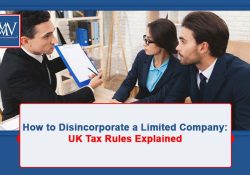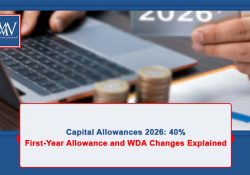Self-Assessment Return
Makesworth’s Self-Assessment Tax Return service for individuals helps to ensure your tax return is completed in a timely and efficient way, while at the same time ensuring the right amount of tax is paid.
Self-Assessment is a tax system whereby taxpayers are responsible for paying the correct amount of tax on set dates, without waiting for HM Revenue & Customs to demand this. Self Assessment applies to:
- Self-employed people including business partners
- Company Directors
- Individuals with more complicated tax affairs including those who pay higher rate tax
- Pensioners with more complex tax affairs
- People who receive rent or other income from land and property in the UK
- Trustees and personal representatives
- Trustees of approved self-administered pension schemes
- Non-resident company landlords
Payments are normally made in two instalments on 31 January and 31 July each year (except for PAYE and other tax deducted at source). Any balance due is settled the following 31 January.
If you pay tax late then interest will run from the date the tax is due. There is also a 5% surcharge if any part of the tax for the year is unpaid by 28 February after the end of the tax year, and there will also be a further 5% surcharge on any amounts still unpaid five months later, at the end of July.
If you submit a paper return, you need to submit the completed return by 31 October following the end of the tax year. For electronically-submitted returns, you have until 31 January following the end of the tax year in order to submit the return. Makesworth Accountants will normally submit your return electronically. Therefore, the effective deadline for clients for whom we complete tax returns is 31 January.
When you submit tax return late there is an automatic penalty of £100 plus a further £100 if the return is more than six months late, with the proviso that the penalty cannot be more than the tax due.
The Revenue may ask questions if they suspect that something is wrong. They also select some returns at random for checking even where everything appears to be in order. The Revenue has 12 months from the normal filing date to notify you if they intend to make inquiries.
It is obligatory under self-assessment rules to keep documentary evidence supporting all the figures making up your tax return. Records relating to property income or any self-employed income must be kept until at least the 5th anniversary of the filing date for the tax return. Income relating to employment and investment income must be kept for at least one year after the normal filing date. As a general rule, we would advise clients to retain all their tax and business papers for at least six years from the end of the tax year to which they relate.
If you do not keep your records for the required period, the revenue may charge a penalty for each tax year concerned.
You may choose to complete your own Self-Assessment Tax Return. However, you may find using our services has a number of benefits. These include:
- Ensuring all tax allowances and deductions are claimed
- Easing the burden of additional paperwork
- Specialist tax knowledge which can help you minimize or even mitigate fully any tax liability, now or in the future.
Our Tax Return checklist is a very useful resource when it comes to collecting and collating your information ready to complete your Tax Return.
In the event that you face a tax enquiry from HM Revenue and Customs (HMRC), we are on hand to provide advice and support. We are also able to offer tax inquiry fee protection for professional fees arising from Revenue investigations.
For further information about our Self-Assessment Tax Return Service and/or a Book a Meeting for completing your Self-Assessment Tax Return, please email info@makesworth.co.uk or
call 020 7993 8850.![]()
Need Accountancy Support?
For information on bespoke training, or if you have any other questions for Makesworth Accountants, please fill in your details below


















 151
151